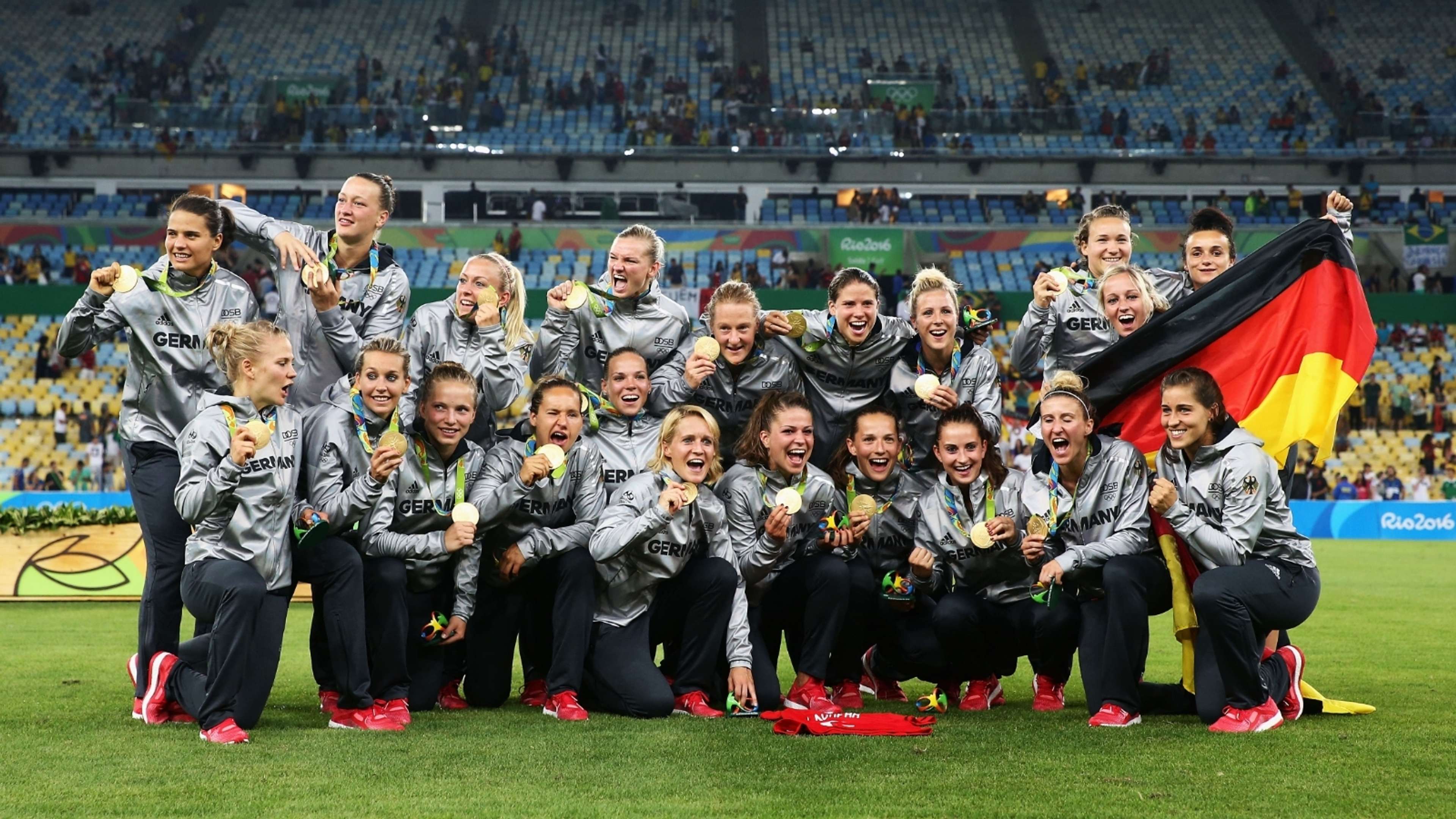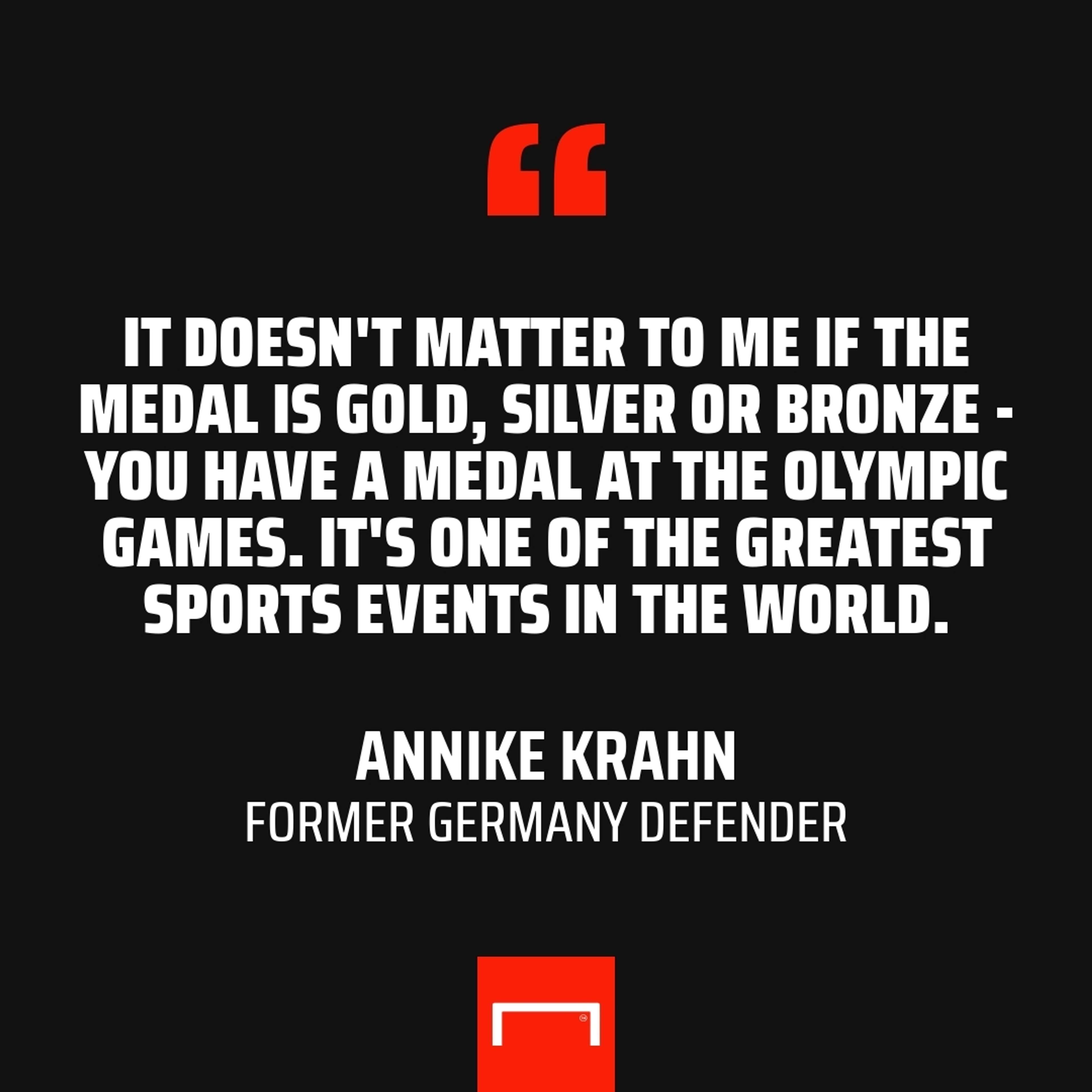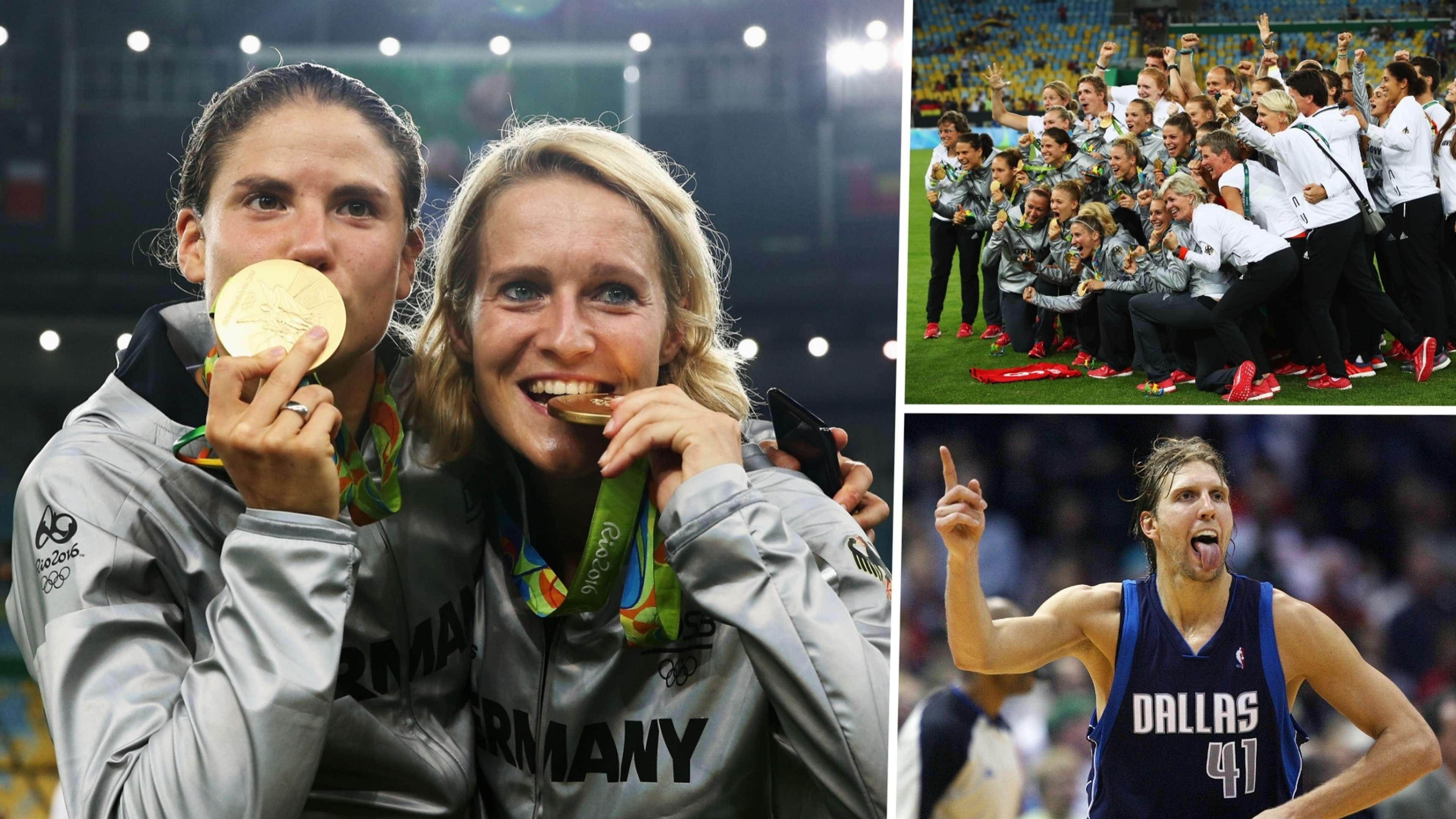NBA legend Dirk Nowitzki may be widely regarded as the greatest European basketball player of all time, but there is one thing he does not have: an Olympic medal.
So when he and Annike Krahn, 137 times a Germany international, crossed paths at the Games in 2008, he had one request.
“I asked him for a picture,” Krahn, who was part of the team that won bronze in Beijing, tells Goal. “He said, 'Yes, but only if I can take your medal once!’ It was a special situation.”
Did he get it? “Yes, but just for the picture!”
It is one of a number of surreal stories that Krahn can tell, looking back at a career that saw her win the World Cup, the Euros, the UEFA Women's Champions League - then the UEFA Women's Cup, and, eight years on from bronze, Olympic gold.
Next Match
It meant that Nowitzki would not be the last person to ask to borrow one of her many winners’ medals.
 Getty
Getty
“When we won [gold], I worked in the German football museum and I guided people,” she explains. “When my colleagues asked me, sometimes I took the medal to show them.
“You want to share this experience, especially when I came back from the Olympics, with all my neighbours, my friends, my family because it's also for them. They supported me my whole career."
Krahn's bronze remains on loan in the museum to this day, something that she remains incredibly proud of, despite managing to upgrade it before she hung up her boots.
“Before I had been to the Olympics, I didn't think that there would be a difference or that it is really special to have a medal,” she explains.
“We came back with a bronze medal and it was a medal at the Olympics. It's really, really special. Nowadays, it doesn't matter to me if the medal is gold, silver or bronze because you have a medal at the Olympic Games. It's one of the greatest sports events in the world.”
The wait to improve on that achievement was longer than Germany would have wanted.
UEFA’s representatives at the Olympics are determined by the performances of European nations at the World Cup the year before, and though Germany hosted the 2011 World Cup as reigning champions, they were eliminated by eventual winners Japan in the quarter-finals, therefore failing to qualify for the Games.
 Goal
Goal
“We were really disappointed that we didn't go to the Olympics in London. It was a long way to go from 2008 to 2016,” Krahn says.
“To go eight years after my first Olympics, to a second Olympics... If somebody told me this before, I would say no, it's unbelievable to go a second time to the Olympics - and now I was at another point of my career.
“I was already thinking, 'Maybe I end my career in the national team before the Olympics’. But I was very lucky and I had a great team. Maybe we were not the best team in the Olympics, but we won the gold medal. It was my last game for the national team so the memories are really emotional.”
Krahn did not know in that moment that she would call time on her international career after the Games, but she knew for certain it would be her final Olympics so, having won the gold medal, she set about enjoying the rest of her time in Brazil.
“It's amazing. There are no words to describe the situation,” she says, recalling the feeling of going onto the podium as a winner. “You hear the German anthem after and it's a really special situation to get there as a team, to share this moment with your team. I love team sports for moments like this.
“On Friday after our game, we celebrated, of course, then I went to the final of the men's football tournament. Germany played against Brazil. The atmosphere was amazing. It was the first time I enjoyed the stadium atmosphere at the Olympics as a spectator.
“After we went to the athletics, because we were thinking, 'okay, what is maybe special at the Olympics?' For us, to go one time in the stadium for the athletics was a memory. We saw a gold medal for Germany there in javelin [for Thomas Roehler]. I also saw handball with Germany, and they won a bronze medal.”
Krahn’s own success puts her, and four of her team-mates, down in the history books, too. She is one of just eight female players to have won the World Cup, Euros and Olympics.
“If somebody told me this at the beginning of my career, I would say no, never,” she says. “I felt like maybe I was not the most talented player and I was seeing criticism. But to achieve all this, I say every time, 'yes, maybe you don't like my performance, or maybe you don't like our play, but at least it is successful’.
“I was really lucky to have these great teammates, and not only teammates. They were like friends and it was more the personalities.
“If you played all these matches or if you had this career, you have to be thankful. You have to be also consistent. You have to work really, really hard for this.
“I've worked really hard for all this success. To be honest, you never know if it's possible or not in your career.”


